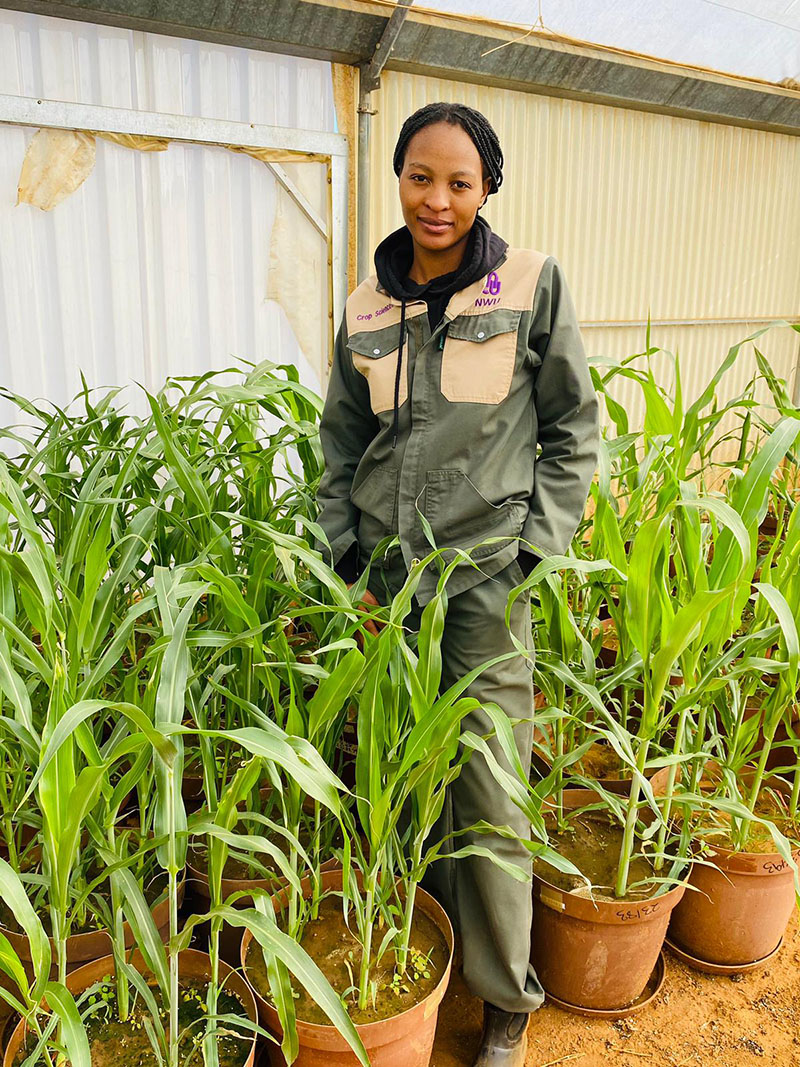High feed costs and declining meat quality are two of the biggest challenges facing the global poultry industry. For many smallholder farmers in South Africa, these issues are even more pressing, as they struggle to balance production costs with the demand for affordable, nutritious meat.
Against this backdrop, Phethile Emmelina Mabuza, an MSc graduate in animal science from North-West University (NWU), has pioneered a sustainable solution rooted in both innovation and local resources.
Her research, titled “Oyster mushroom fermented Vachellia erioloba pods as a replacement for wheat bran in broiler diets,” explored the use of camelthorn pods, a readily available but underutilised resource in rural areas, as a cost-effective and nutritionally beneficial feed alternative.
By fermenting these pods with oyster mushrooms, Phethile developed a novel ingredient that could replace up to 10% of wheat bran in broiler diets without compromising growth performance, carcass traits, or meat quality.
“The idea was to look at what rural farmers already have around them and find ways to make it useful in poultry production,” she explains. “Camelthorn pods are abundant in many communities, and with the right processing, they can become part of the solution to high feed costs.”
The study involved 400 Ross 308 broiler chicks and tested different inclusion levels of the fermented pods. While growth rates and carcass characteristics remained unaffected, the results revealed significant benefits.
Chickens fed the fermented pods had improved feed intake, higher gizzard weights, and enhanced fat and ash content in their breast meat. Importantly, the diet also boosted immune competence, lipase activity, and monounsaturated fatty acid profiles in the meat, contributing to better nutritional quality for consumers.
Born and raised in Nkomazi, Mpumalanga, Phethile’s passion for agriculture stems from her upbringing in a rural community where small-scale farming was central to survival. Witnessing these struggles firsthand gave her a lifelong commitment to finding practical solutions for food security and rural development.
Her academic journey began with a BSc in agriculture (animal science) at the NWU, followed by an MSc in animal science with a specialisation in animal
nutrition, which she completed with distinction. Along the way, she also received training in mushroom cultivation, feed formulation, green chemistry, and statistical analysis, skills that enriched her innovative approach to poultry nutrition research.
Phethile has already presented her findings at academic forums, such as South African Society for Animal Science sparking discussions around sustainable feed alternatives in South Africa. Her vision goes beyond academia: she hopes her work will empower rural farmers to adopt cost-effective feed solutions, reduce dependence on imported ingredients, and contribute to local food security.
Outside the laboratory, she is deeply involved in mentoring aspiring agricultural students and supporting community farming projects. “For me, research is not just about science,” she reflects. “It is about making a difference in people’s lives, especially in rural areas where innovation can transform livelihoods.”
Looking ahead, Phethile envisions herself as a leader in sustainable animal nutrition, bridging the gap between scientific research and practical farming solutions.

Phethile Emmelina Mabuza
